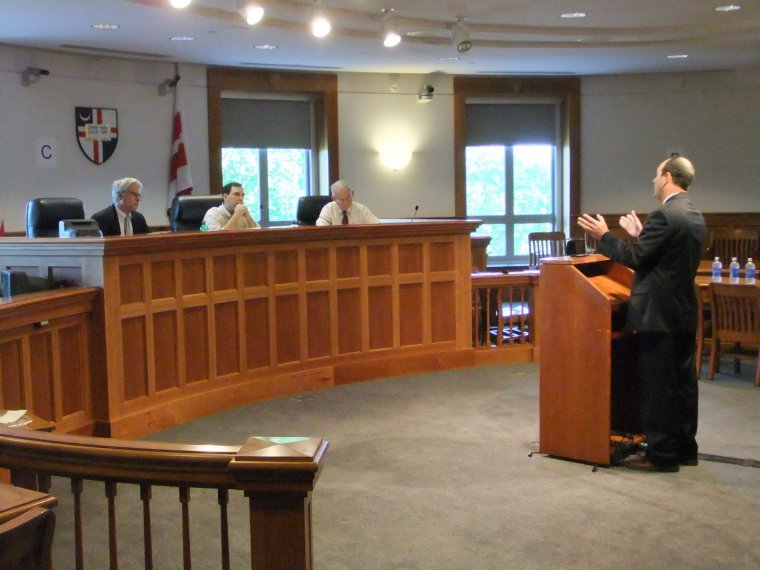In the second week of the trial, executives of the bank denied taking actions that led to BSP selling cheaply shares in OMG companies — which it had taken as collateral for deferred loans — to associated companies before their terms expired. The sales were made in 2009 after OMG ran into trouble following the financial crash of 2008.
Questioned about a 25 December 2008 meeting between then chairman of BSP’s management board Alexander Savelyev and Arkhangelsky, Savelyev’s deputy Vladislav Guz denied the agreement to transfer the shares under a ‘repo’ (repossession) agreement was a strange move.
“I don’t think it would be strange, because according to this transfer, he would have got all his shares back after repayment of the debt, and I think that was his only opportunity to restructure the loan,” Guz said.
By March 2009, BSP believed OMG had no real prospects of returning to solvency, Guz added.
Arkhangelsky’s legal representative Pavel Stroilov asked why specific terms of the restructuring were not agreed at the December meeting.
“There was a maturity date for some of the loans in the amount of a few hundred million roubles, in case there was no agreement about any restructuring, the default would happen in the end of 2008,” Guz responded.
But in separate questioning, Tatyana Stalevskaya, a senior manager at BSP’s corporate finance department until November 2010, agreed that her witness statement did not concur with evidence given by other executives.
Stalevskaya, who was responsible for drafting the memorandum of agreements between BSP and Arkhangelsky as a safeguard for the bank’s loans, agreed that documents shown in court did not accord with statements made by her senior manager Irina Malysheva, who oversaw the corporate finance unit.
“If to evaluate the information that I can see here, considering what I know, yes, this is not true; this does not accord with what I know, because I know that a memorandum has been signed, and the repo transaction has been signed about the separate sale of Western Terminal as a separate asset, that was never discussed, at least it is not something I know,” Stalevskaya said.
Later Stroilov claimed: “In the evidence of these six witnesses, which you have looked through, all of it tells the same lie, doesn’t it?”
Stalevskaya answered: “The background, the history of the purchase of the shares in this evidence is not consistent with the knowledge that I have now, sitting here today, and it only shows the first component of the repo transaction without referring to the second component, which had been agreed upon, ie the repurchase of the shares in the event that Mr Arkhangelsky complied with his part of the deal, ie the obligations that he had assumed under the memorandum.”
Shares in the OMG companies, including terminals in St Petersburg, were sold to firms that were part of Renord-Invest, a company owned by a former BSP employee, Mikhail Smirnov. BSP argues that it needed to sell the shares in repo deals to an independent partner company to prevent them being consolidated into its balance sheet for reporting purposes.
The case moved to Paris in its third week to hear evidence from Arkhangelsky in sessions for which public transcripts have not been made available. The case, which is expected to last for 12 weeks, continues.
via TradeWinds - 25th February
Paul Berrill, London

No comments:
Post a Comment